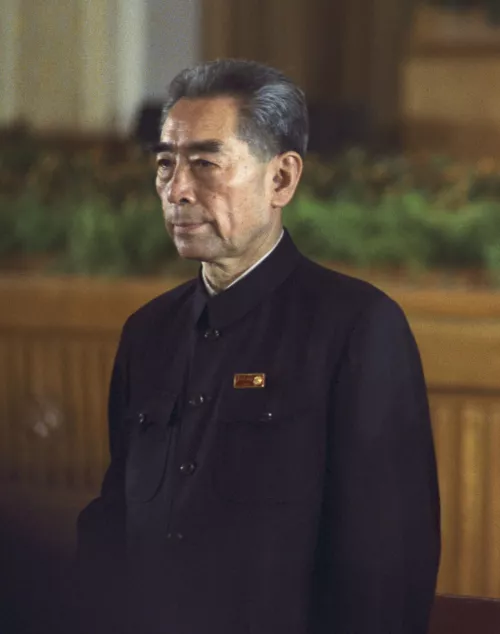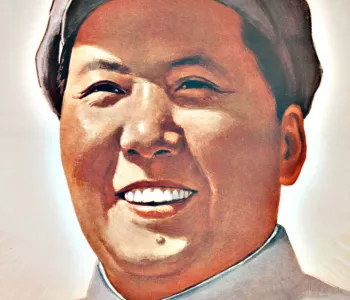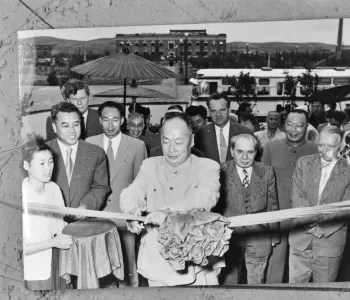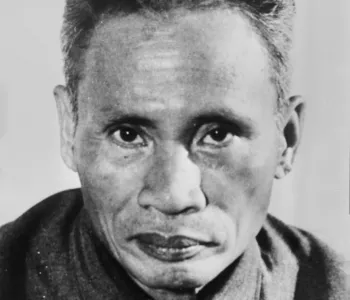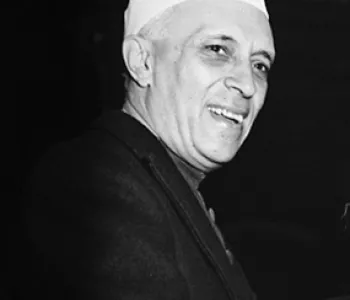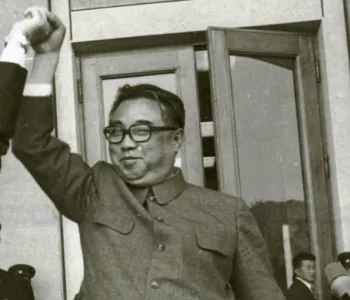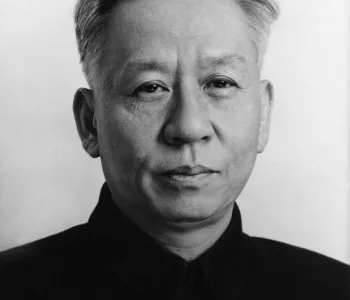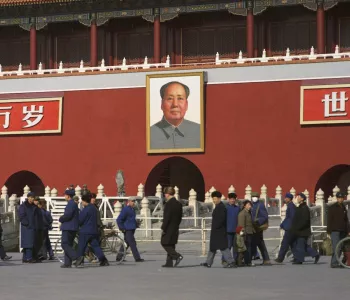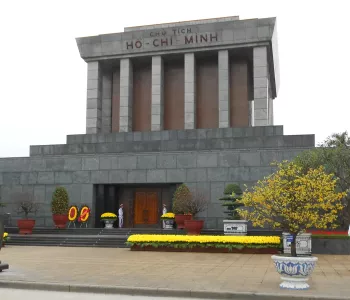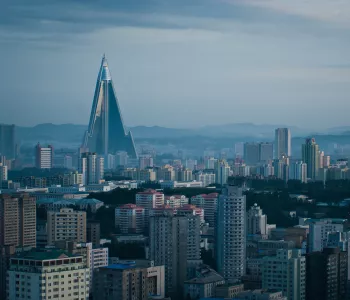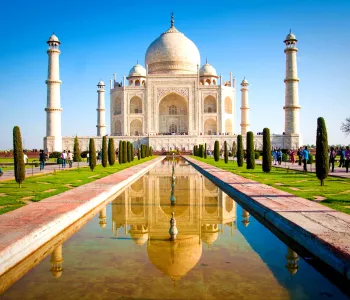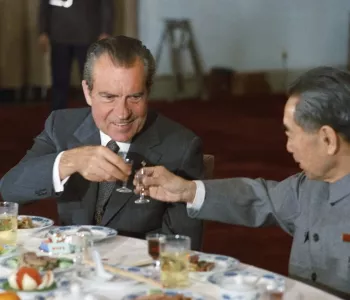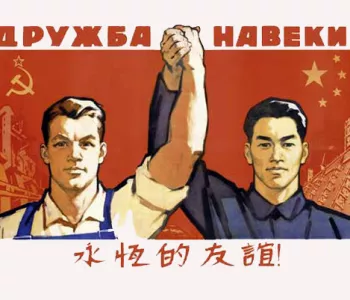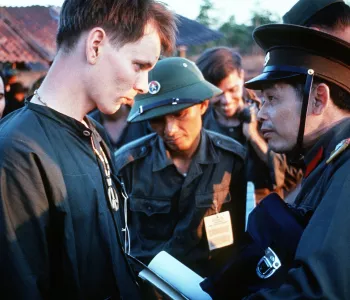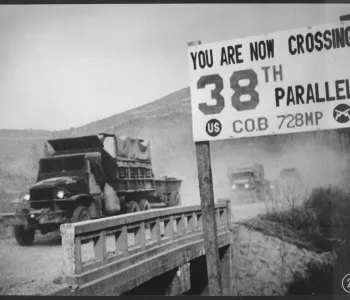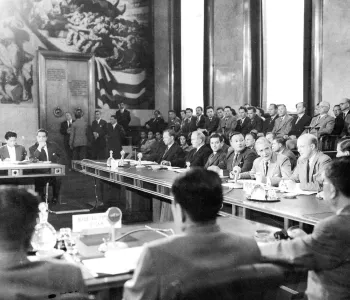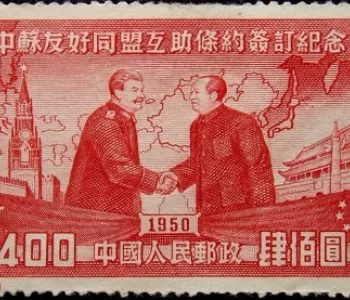Born in 1898 in Hwaian, Kiangsu Province, into a middle-class family, Zhou Enlai attended Chinese, Western missionary, and Japanese schools.
In 1919 he was jailed briefly for involvement in student demonstrations. Upon his release, Zhou went to Paris to continue with his studies. He soon became a communist activist in the expatriate Chinese communist movement in Europe. In 1924, he returned to China and became an organizer for the party and its ally at the time, the Kuomintang (KMT).
After surviving KMT leader Chiang Kai-shek's bloody purge of his communist partners in 1927, Zhou was elected to the Politburo of the communist party.
Together with Mao Zedong, Zhou was a leading participant in the communists' "Long March" in 1934-35. A year later, Zhou, a skillful negotiator, succeeded in convincing a captured Chiang to cease his anti-communist policies and instead form a joint coalition against the Japanese invader. Zhou became the communists' liaison to Chiang's government. During and after World War II he also was the principal communist representative in talks with the United States, which made several efforts to bring about a reconciliation between the communists and KMT.
Upon the communist victory in the Chinese civil war in 1949, Zhou became his government's chief diplomat. As Prime Minister he also oversaw the vast state bureaucracy. Zhou was involved with his government's delicate talks with Stalin between 1949 and 1953, and the cease-fire talks in the Korean War. He also made his mark at many important international conferences during the 1950s, such as the 1954 Geneva Conference, which ended France's rule in Indochina, and the 1955 Bandung meeting of Third World nations. In 1961 his demonstrative departure from the 22nd Soviet Communist Party Congress symbolized the alienation between Moscow and Beijing. The often pragmatic and moderate Zhou was attacked by radicals during China's "Cultural Revolution" after 1966, but he kept his position and influence, which was demonstrated in 1971 and 1972 when he was a central figure in the Chinese-U.S. rapprochement. In 1972, Zhou was diagnosed with cancer and died four years later in Beijing on January 8, 1976.
